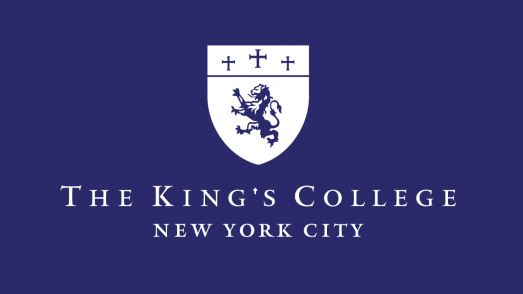Graduating Seniors Create a Business to Close the Wage Gap
Juliarose Childs (BUS ’19) and Laura Paradis (BUS ’19) create Fe | Negotiations, a coaching and training business to help women and minorities close the wage gap.

In the fall of 2018, two business majors sat in a negotiations class with Professor of Business Kimberly Reeve and learned that over the course of their lives, women can lose up to a million dollars in compensation because they did not negotiate their starting salaries. Later in an entrepreneurship class, these students, Juliarose Childs (BUS ’19) and Laura Paradis (BUS ’19), used their midterm assignment to create a business proposal with a solution to a problem they both deeply care about—closing the wage gap between men and women.
Two days before their midterm was due, Childs suggested they rework their assigned project. She wanted to design a business that empowers and equips women to address the wage gap problem. Their professor encouraged them to scale back their coffee shop startup proposal and hone in on the main issue, negotiation.
According to a Pew Research Center study, not negotiating a starting salary creates a 7.4% wage gap at the beginning of a career, which only increases over time. Additionally, only 7% of women negotiate a salary. This is largely due to a lack of confidence, which Childs sees in her personal life. “I was sitting in my apartment with two friends,” she recalls. “I was searching for jobs and passing so many by because I didn’t think my skills matched the job descriptions. One of my friends was writing a cover letter and the other was writing a resume.” She says all three felt inadequate and underqualified. Then, she realized that her friend writing the cover letter was the president of the debate club, but still undervalued her ability to articulate herself. The other friend worked for the state department and had a wide set of transferable skills. Childs explained, “Women have blind spots when they look at themselves. We need a community around us to recognize those blind spots and speak value into each other’s lives.”
She and Paradis felt convicted to put their business idea into practice. Childs said, “We care enough about the problem and we have the responsibility to do something about it.” They plan to launch their business, Fe | Negotiations, in the fall of 2019. Fe’s mission “is to help females use their voice, to fight for their value by providing accessible tools and caring-based mentorship.” Their target customers are women aged 20 to 27, who would benefit most from negotiation training through one-on-one coaching, workshops, and panels.
The name “Fe” has a double meaning. Fe is the element name for iron on the periodic table. “We want to be iron women, strong, sharpening on another,” Paradis said. “Fe also stands for ‘female empowerment,’” added Childs. While the female empowerment movement has identified the problem of inequality between men and women’s salaries, Fe aims to be part of the solution. “The pay disparity between minority females and white males in New York City is the largest wage gap in the country,” Childs said. “We want Fe to equip women to actively address this issue and see a real change here in our city.”
Childs and Paradis feel strongly that confidence without practical skills is ultimately ineffective, and women need both. After all, Childs said, “Confidence comes with competency.” When women feel competent in their ability to negotiate their salary and conduct themselves powerfully in the workplace, then their confidence will grow. For Childs, it is about changing the narrative and vocabulary. For example, she wants to see more women stop apologizing for being late to a meeting, saying instead, “Thank you for being patient.”
Fe’s mission is an extension Childs’s and Paradis’s faith. They want women to see themselves as they truly are—valuable and worthy. Paradis said, “Our actions, or lack of action, reveal what we really think about ourselves.” If women properly value themselves, they will understand how to communicate that in their workplaces. Childs and Paradis draw a connection between their mission and the mission of The King’s College. Influencing strategic institutions includes supporting the women working in those institutions. “We’re trying to drastically improve the economic security of a woman’s life,” Paradis said, “and if we change 10 lives, we have fulfilled our purpose.”
Childs and Paradis had the opportunity to test a prototype of a Fe event at King’s this past April. With support from The King’s Council and the Office of Career Development, Fe hosted a panel of women who spoke about negotiation and workplace conduct. Paradis and Childs were excited to share what they learned in their business classes with a wider student audience. Paradis said, “Negotiations with Dr. Reeve was so impactful. No other majors have to take that class. So many people are graduating from King’s without knowing how to negotiate, or knowing how impactful it is for the rest of your career.”
In the coming months, Paradis and Childs will be focusing on market research and business development. They will conduct interviews with experts and develop their business plan, which they hope to launch in the fall. Their website will be live in the summer of 2019.




